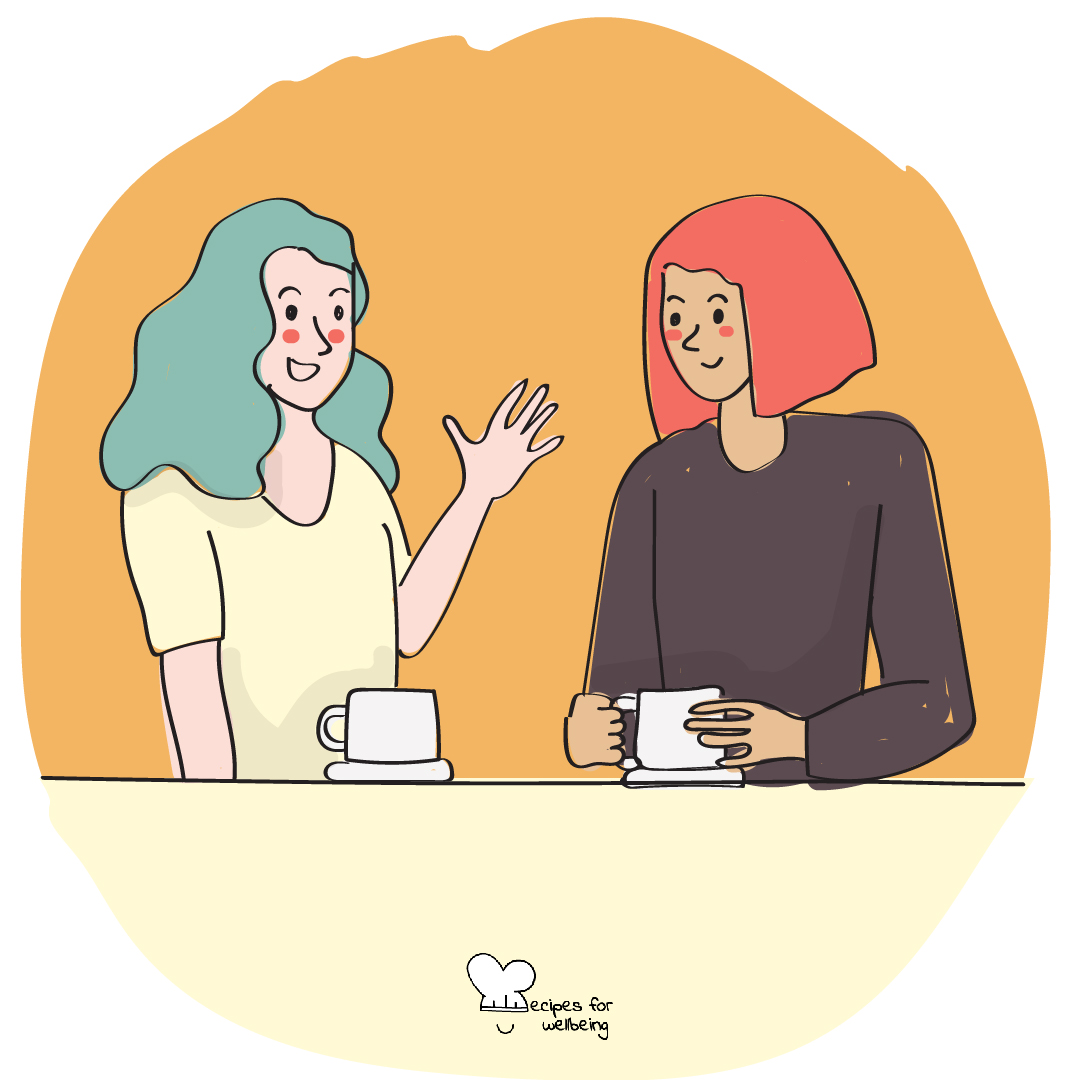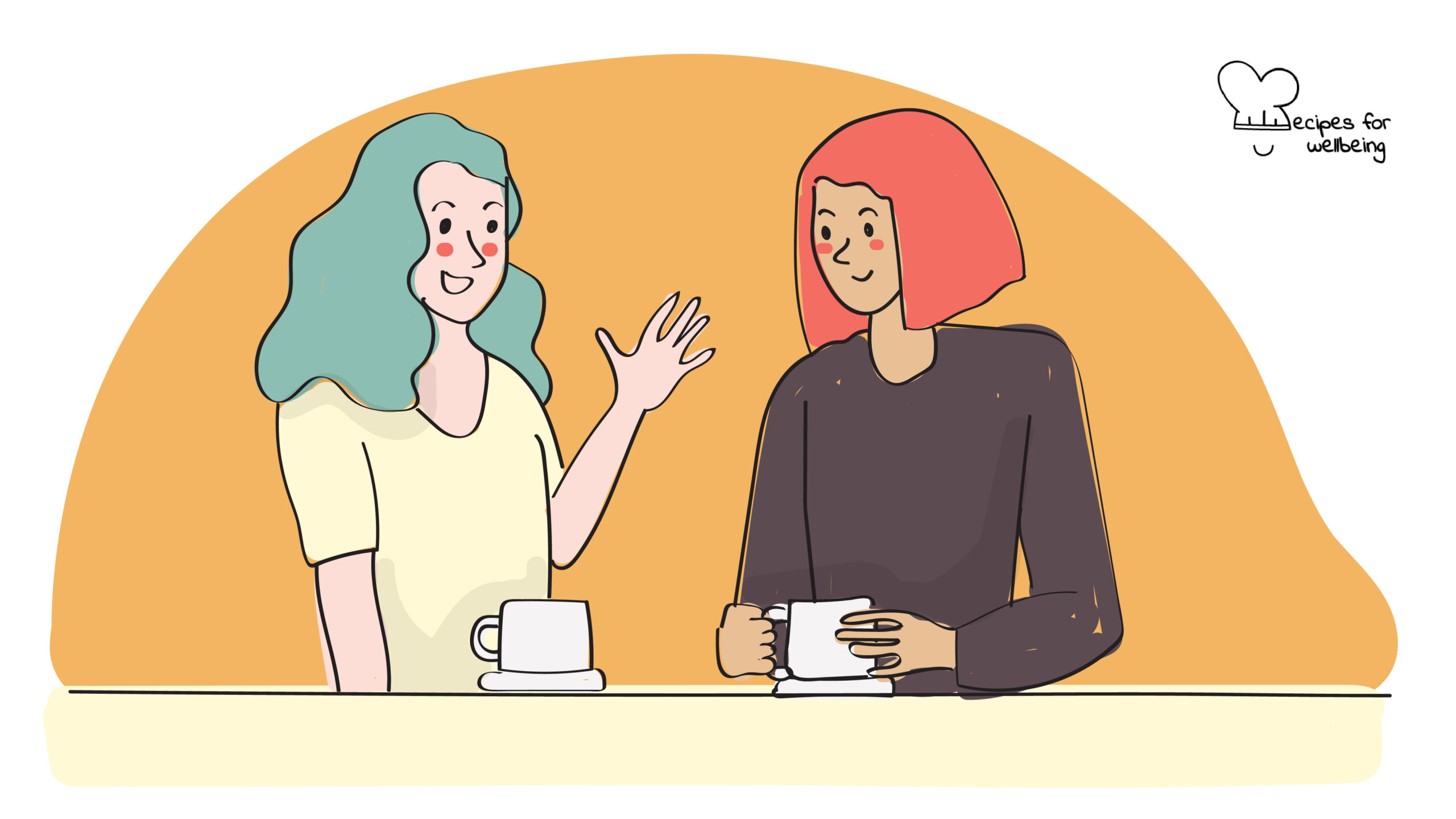
Words matter
One must still have chaos in oneself to be able to give birth to a dancing star. ―Friedrich Nietzsche
👥 Serves: 1 person
🎚 Difficulty: Medium
⏳ Total time: Ongoing
🥣 Ingredients: Thoughtfulness, self-awareness, sensitivity
🤓 Wholebeing Domains: Awareness, Community, Liberatory Learning, Radical Care
💪 Wholebeing Skills: Accountability, Allyship, Challenging, Diversity, Emotional intelligence, Flourishing, Non-judgement, Respect, Self-awareness, Self-directed learning

Words matter
📝 Description
What do you say when you talk about mental health?
When it comes to mental health and mental ill health, the words we use matter more than we think. The way we talk about mental health and people experiencing mental distress can reinforce negative stereotypes and be stigmatising, without us even realising it.
Language is a powerful tool for creating awareness and fighting stigma, so here are a few tips on how to be mindful of the words we use and how to avoid causing offence when we don’t mean to. We have tried to pick terms that are non-stigmatising, but we understand that each person is unique, and some people may not identify with the language chosen here.
The source of this recipe is Mental Health Europe. We also encourage you to check out our recipe “Talking mental health in the workplace” for skills to develop to talk about mental health concerns in your team or organisation.
👣 Steps
Step 1 – Be careful with labels: Do not refer to people as their conditions
A person living with a mental health problem is much more than their experience or diagnosis. You could not describe yourself with a single word, could you? Avoid the use of diagnostic language when referring to people: A diagnosis does not represent a person’s whole identity!
- Yes to: “a person with a mental health problem,” “a person living with mental ill health,” “mental health service users,” “person with lived experience,” and “expert by experience.”
- No to: “A psycho,” “he/she is a schizophrenic,” he/she is a depressive,” “the mentally ill/sick,” “people with mental disorders,” and “the mentally diseased/disordered.”
Step 2 – Speak about the experience, not the symptoms
We all have mental health, and we may all experience psychological distress at some point because of specific events or circumstances happening in our lives. Experiences of mental distress can vary greatly from individual to individual. When we need to bring up someone’s mental ill health, it is better to speak about what they are experiencing, rather than using psychiatric terms. Terms such as ‘illnesses’ or ‘diseases’ can be helpful for some people as they may help them seek help and support, but they can also hinder our understanding of mental distress as a wide spectrum of experiences and feelings.
- Yes to: “a person experiencing mood swings,” “she/he is hearing voices or has unusual beliefs,” “he/she has been given a diagnosis of…,” “someone who is currently experiencing…,” “a person receiving support for…,” “people experiencing mental ill health / mental distress,” and “encountering / experiencing emotional or psychological difficulties.”
- No to: “the patient,” “symptoms of depression,” “he/she has bipolar disorder,” “mental disease,” and “suffer from…”
Step 3 – Mind your language, clichés can be harmful
Too often psychiatric diagnoses are wrongly used in our everyday language, regardless of our mother tongue. Our language(s) evolve, and we should be extremely cautious not to perpetuate clichés and reinforcing negative stereotypes when talking about mental health. The media also has a huge influence on people’s attitude and needs to be better informed on how to avoid using sensationalist terms and adopt more realistic, sensitive portrayals of mental health.
- Yes to: “Statistics show that most people living with mental ill health are no more likely to be violent than anyone else. People experiencing mental distress are unfortunately more likely to be victims of violence or harm.”
-
No to: “I am so OCD, I have cleaned our bedroom twice this week,” “What’s going on with the weather, it’s so bipolar,” “Policemen arrest ‘psycho’ knife-attacker,” and “Schizophrenic who sent the letter jailed.”
Ask yourself: is it helpful to the story to mention this person has experienced mental ill health?

